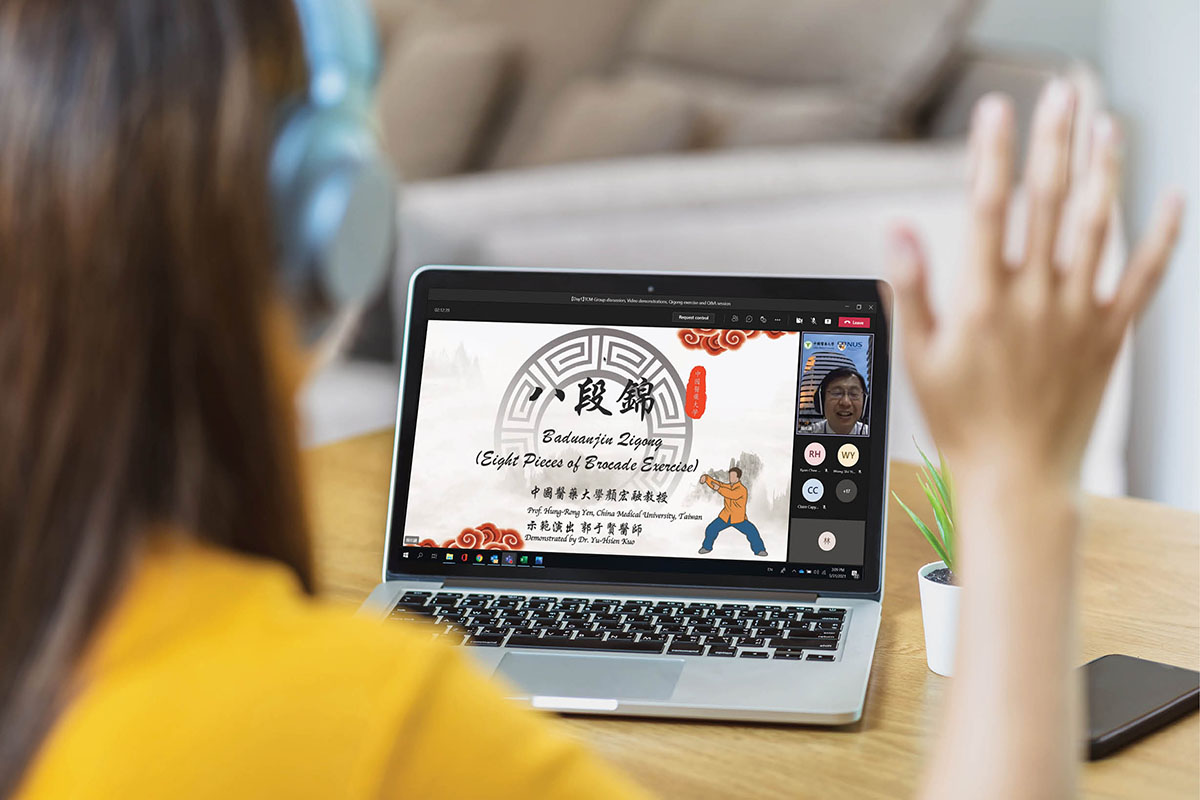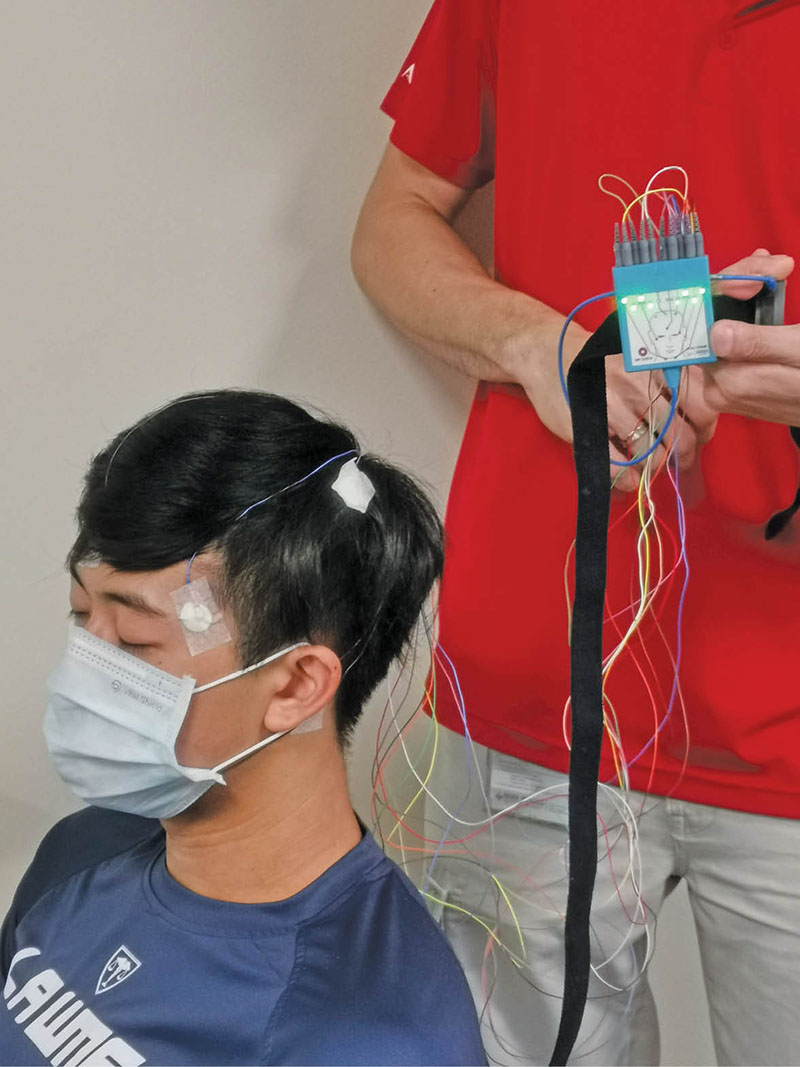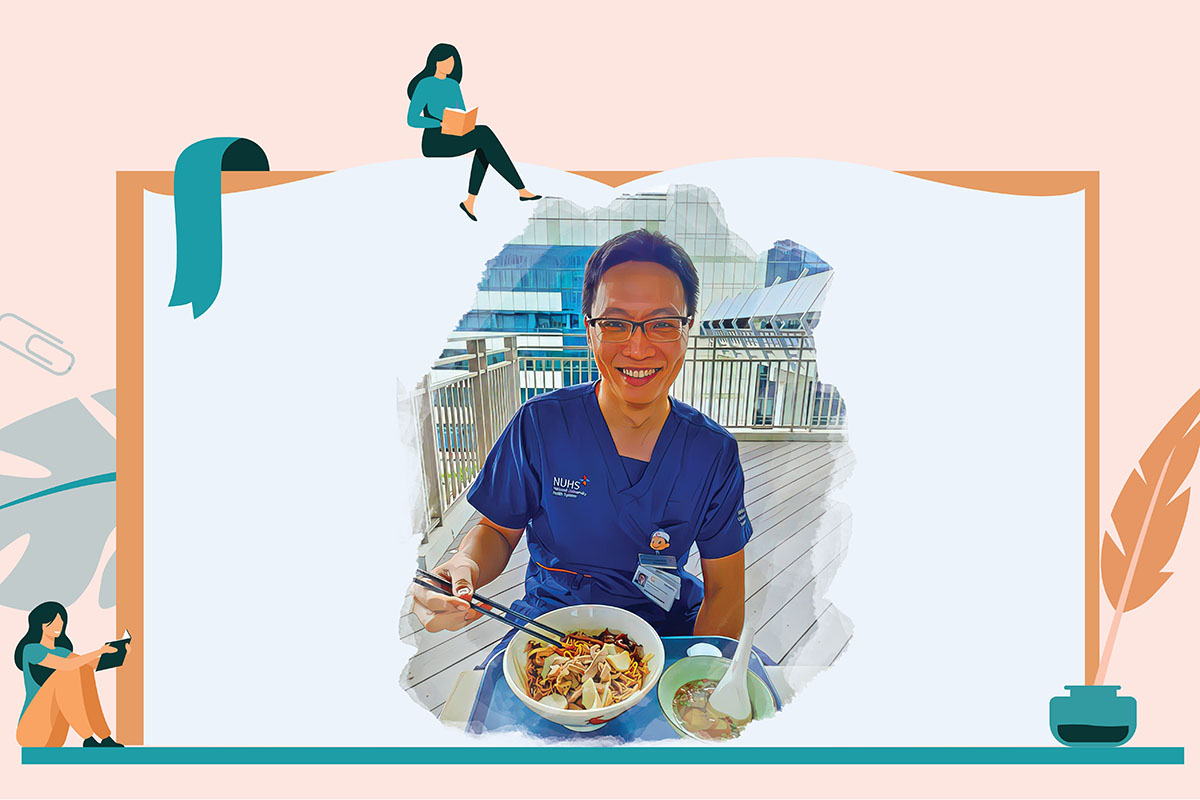
Issue 40 / November 2021
DOSSIER
Learning in the New Normal

To enhance learning for medical students who are keen to explore courses outside of their usual curriculum, the NUS Yong Loo Lin School of Medicine introduced a series of enrichment modules between May and July 2021. International medical and nursing students from 19 schools, across 11 countries, in addition to NUS Medicine students, participated and benefitted from these enrichment courses.
espite initial plans for the modules to be conducted in person, with field trips and experiential learning, most of them had to be held virtually in light of the developments surrounding the pandemic.
The enrichment modules sought to enable medical students to gain knowledge in other health-related fields outside of clinical medicine, and included Design for Health and Medical Practices (healthful design), Sleep and its Role to Sustaining Health, Well-being and Learning (why you should sleep more), Salut to the Everyday Microbes (microbes in everyday life), Traditional Chinese Medicine: From Basic Theory to Clinical Application (integration of TCM), The Art of Practising Interprofessional Learning (significance of collaborative learning across disciplines), Neuroscience, AI and Medicine (deep learning), Music, Health and Well-being (music therapy), Foundation of Medical Education (students as future educators), Natural Intoxication in the Tropics: The Vietnam Perspective (toxic mushrooms and snakes), and, Introduction to Health Informatics (data science in healthcare).
The virtual modules comprising didactic lectures, group discussions, group projects and presentations were conducted via Zoom and Microsoft Teams. This enabled students to engage in asynchronous learning and provided the platform for students from various countries to interact and continue discussions. As a pilot run, the average class size for each module was capped at a maximum of 20, to allow for better student engagement and interaction.
“The pandemic had brought about new challenges with the travel restrictions and suspension of clinical electives. The face-to-face interactions are difficult to replicate over virtual platforms, but having the modules online also allows a wider reach, allowing more students to benefit from it.”
Among the modules, two were conducted in collaboration with international partners.
The Vietnam Military Medical University (VMMU) arranged for lecturers from the Centre of Military Toxicology to share about the various toxic mushrooms and venomous snake bites that were common in Vietnam (well documented with many photos of real patient cases), but very rarely seen in Singapore’s urban landscape. China Medical University’s College of Chinese Medicine, which offers curriculum integrating Traditional Chinese Medicine with Western Medicine while maintaining the distinctive features of each discipline, offered our students (who are taught in Western Medicine) a new perspective about Medicine as a whole. In addition to the insightful introductions to these novel areas, the lecturers showed great hospitality to our students, who shared that “[the module] felt very much like a cultural exchange”.

Student trying on a device in “Sleep and its Role to Sustaining Health, Well-being and Learning”, the only face-to-face module conducted.
The pandemic had brought about new challenges with the travel restrictions and suspension of clinical electives. The face-to-face interactions are difficult to replicate over virtual platforms, but having the modules online also allows a wider reach, allowing more students to benefit from it. Beyond the fascinating content offered in each module, the interaction among medical students all over the world enhanced the whole learning and enrichment process, as they shared experiences and local context. “The various backgrounds of the participants gave us different perspectives about the current conditions in other countries. I learnt that all the students had similar concerns regarding medical education, especially during the pandemic—and somehow that made me realise that we are not facing this hardship (pandemic) alone,” remarked Fona Qorina, student from the Faculty of Medicine, University of Indonesia.
The organising committee is grateful for the support from all the lecturers and students, and will run the next cycle of the programme next year, potentially with a hybrid format allowing for both in-person and virtual learning, to cater for students who can travel to Singapore as well as those who may face travel restrictions.




